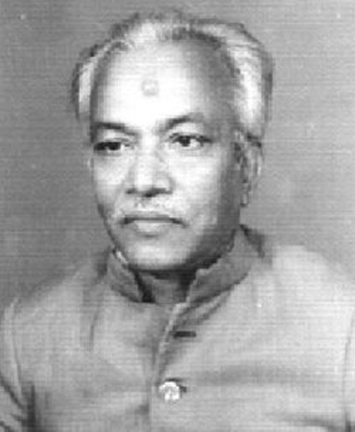
Abul Kashem
The Pioneer and architect of the historic Language Movement of Bangladesh. He was also a politician, author and an eminent educationist.
The Language Movement is a glorious chapter in the history of Bangladesh. The importance of this movement lies in the fact that this movement led to the events that consequently resulted in the emergence of the separate sovereign nation of Bangladesh in 1971. This movement was first initiated by an alumni of the Department of Physics, Abul Kashem.
Soon after the formation of Pakistan on 14th August, 1947, West Pakistani rulers started to impose Urdu in the then East Pakistan as a state language. On 2nd September 1947, Abul Kashem, founded Tamaddun Majlish, a non- political literary and cultural organization, to mobilize students, intellectuals, and the general people in support of the Bengali language as a state language in Pakistan. Abul Kashem and his group first protested and took effective action against the Urdu-only-state-language decision of the government.
Within a short time, Abul Kashem published a book named “Pakistani Rashtra Bhasha: Bangla Na Urdu?” on 15th September 1947. He was also the founder of the Language Movement mouthpiece, Weekly Sainik. He formed the first Rashtrabhasa Sangram Parishad (State Language Committee of Action) on 1st October 1947 with Nurul Huq Bhuiyan as the Convener. The bloody chapter of 1952 began when Khawaja Nazimuddin, the provincial Chief Minister, declared Urdu as the state language at Paltan.
Abul Kashem, graduated from this department in 1944. He did his M Sc. in 1945. His thesis supervisor was the world-famous scientist, Professor S.N. Bose. He started his carrier as a lecturer in the department in 1946. Abul Kashem was a passionate educationist. He established the Bangla College at Mirpur, Dhaka, in 1962 and served as its Principal till 1981.